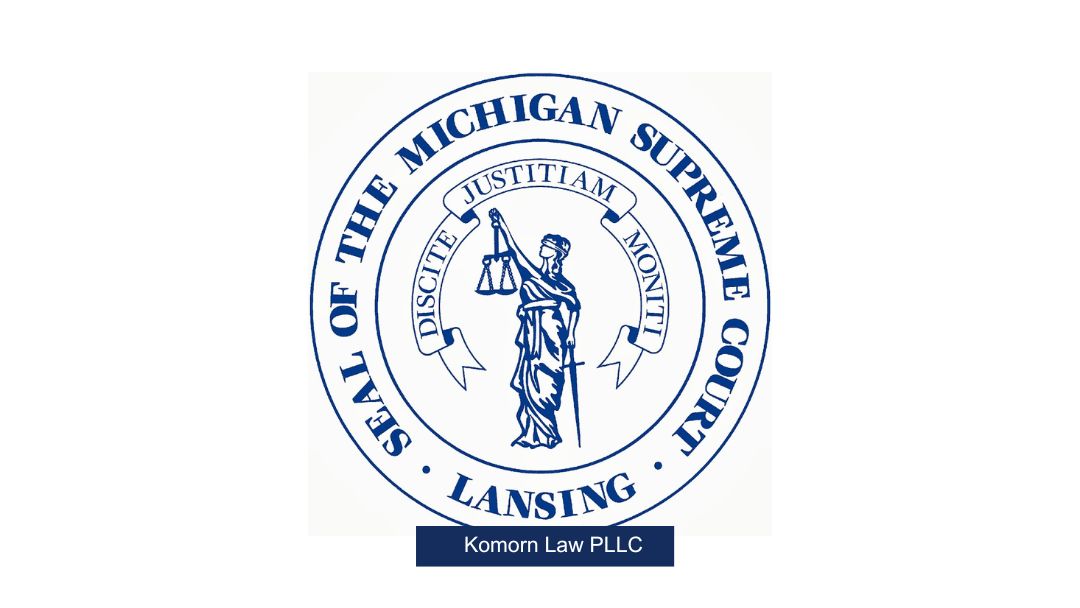In a landmark decision, the Michigan Supreme Court has ruled that counties cannot retain surplus proceeds from tax-foreclosed property sales, a move poised to return millions to former homeowners. This ruling, stemming from the case Rafaeli, LLC v. Oakland County, found that keeping surplus auction proceeds violated the Michigan Constitution’s Takings Clause, which prohibits the government from seizing private property without just compensation.
MCL – Article X § 2 Seizing private property without just compensation
Typical Government Hustle
Historically, Michigan’s tax foreclosure law, established in 1999, allowed counties to auction off properties with unpaid taxes and retain any proceeds beyond the owed taxes and associated fees.
This practice led to significant financial windfalls for counties, often at the expense of the original property owners, who lost their homes and any equity built up in them.
The Supreme Court’s decision overturns this precedent, emphasizing that former homeowners are entitled to any surplus funds from these sales.
The Michigan Supreme Court ruled that practice as unconstitutional and said the homeowner was entitled to that surplus.
At the time of the ruling, only claims from 2020 and later qualified for reimbursement of funds, but a new ruling Monday could impact sales as far back as 2014.
The case that catalyzed this ruling involved Uri Rafaeli, whose property in Oakland County was sold for $24,500 after he failed to pay a $285 property tax debt.
The county kept the entire sale amount, far exceeding the owed tax. The court ruled this action as an unconstitutional taking, highlighting the inequity of the practice.
This decision has significant financial implications for Michigan counties.
Many counties relied on surplus proceeds from tax foreclosure auctions to supplement their budgets and support various county operations.
Wayne County, for instance, often used these funds to cover budget deficits. Now, counties may face financial strain, particularly if the ruling is applied retroactively, necessitating repayments for past surpluses retained from property sales prior to the 2020 decision.
In response to the ruling, Oakland County and others will need to amend their practices. Oakland County has already settled a related lawsuit, establishing a $38 million fund to compensate affected homeowners. This settlement underscores the potential scale of financial restitution that counties might need to provide.
Like every other poor decision the government makes it will be funded by tax payers.
The ruling aligns Michigan with other states that ensure surplus proceeds from tax sales are returned to former property owners, reinforcing property rights and equitable treatment. Moving forward, Michigan counties will need to adjust their tax foreclosure processes to comply with this ruling, likely influencing legislative changes to solidify the new legal framework.
For former homeowners, this ruling represents a significant victory, affirming their rights to any equity remaining in their properties after tax debts are settled. It also serves as a check on governmental overreach, ensuring that property seizure for unpaid taxes does not result in unjust enrichment at the expense of taxpayers.
This decision has broader implications beyond Michigan, resonating with similar cases across the United States. Earlier this year, the U.S. Supreme Court sided with a Minnesota homeowner in a comparable situation, emphasizing a national trend towards protecting homeowners from losing their property equity in tax foreclosure processes.
Conclusion
The Michigan Supreme Court’s ruling mandates a fairer approach to tax foreclosures, ensuring surplus proceeds return to the rightful owners and setting a precedent for property rights protections. This decision will reshape county financial strategies and bolster homeowner protections, marking a pivotal shift in Michigan’s handling of tax-delinquent properties
Legal Counsel and Your Rights
When facing legal challenges, particularly in criminal cases, it is advisable to seek legal counsel immediately.
An experienced attorney can provide guidance on how to navigate interactions with law enforcement while safeguarding your constitutional rights.
Since 1993 our expert legal defense in navigating criminal law matters and protecting your constitutional rights are what we eat for breakfast everyday.
Contact Komorn Law PLLC if you’re ready to fight and win.
Research us and then call us.
More Rights You Should Know
No Results Found
The page you requested could not be found. Try refining your search, or use the navigation above to locate the post.
No Results Found
The page you requested could not be found. Try refining your search, or use the navigation above to locate the post.
Other Articles
Bloomfield Hills Doctor Convicted of $6M Medicare Fraud Scheme
JUSTICE.GOVFor Immediate Release Office of Public AffairsA federal jury convicted a Michigan doctor today for causing the submission of over $6.3 million in fraudulent claims to Medicare for medically unnecessary orthotic braces ordered through a telemarketing...
Berkley state representative introduces bill to police noise from cars
A Michigan bill aims to crack down on excessive noise from vehicles with intentional modifications. The Problem: Loud vehicles are a nuisance for residents, especially along Woodward Avenue, a popular cruising destination. The current law is unclear and difficult to...
SCOTUS: No separate hearing required when police seize cars loaned to drivers accused of drug crimes
SCOTUS: When police seize cars loaned to drivers accused of drug crimes it does not necessitate a separate preliminary hearing.The U.S. Supreme Court has ruled against two women who loaned their cars to others arrested for drug crimes while using the vehicles, leading...
Traffic FAQs-Golf Carts-Mini Motorcycles-ATVs-Electric Scooters
Traffic FAQs - Golf Carts - Mini Motorcycles - ATVs - Electric Scooters Know the laws if you get pulled over. Know who to call if you need legal defense if a violation turns into a DUI or worse. That would be us. Question: We recently got “Bird” scooters (electric...
School district says marijuana-related incidents on the rise
School district reports an increase in marijuana-related incidents at schools and calls on leaders to take action.The Detroit Public Schools Community District has observed a substantial rise in the use of marijuana edibles and vape pens within schools. In light of...
Criminal Sexual Conduct (CSC) in Michigan
Criminal Sexual Conduct (CSC)Criminal sexual conduct (CSC) in Michigan refers to a range of sexual offenses that vary in severity based on factors like the nature of the act, the age of the victim, and whether force or coercion was involved.Michigan law categorizes...
A Victory for Cannabis Farming as Agriculture in Michigan
A Victory for Cannabis Farming as Agriculture in MichiganIn a landmark case that underscores the evolving landscape of cannabis regulation and taxation in agricultural contexts, HRP Cassopolis, LLC v LaGrange Township Assessor in Cass County, Michigan, has set a...
The Legal Significance of Marijuana Reclassification
The Impact of Marijuana Reclassification on Legal LandscapeOn May 6, 2024, the DEA made a groundbreaking decision, accepting the US Department of Health and Human Services' recommendation to reclassify marijuana from Schedule I to Schedule III controlled substance....

















